 W
WJohann or Johannes Agricola was a German Protestant Reformer in the Lutheran tradition during the Protestant Reformation. He was a follower and friend of Martin Luther, who became his antagonist in the matter of the binding obligation of the law on Christians.
 W
WHeinrich Cornelius Agrippa von Nettesheim was a German polymath, physician, legal scholar, soldier, theologian, and occult writer. He is considered one of the most influential occultists of the early modern period. His book on the occult Three Books of Occult Philosophy was published in 1533, but was condemned as heretical by the inquisitor of Cologne. His work drew heavily upon the influences of Kabbalah, Hermeticism and neo-Platonism.
 W
WAndreas Althamer was a German humanist and Lutheran reformer. He was born in Brenz. He studied at the universities of Leipzig and Tübingen. After completing his studies, he became a schoolteacher in Halle (Saale), Schwäbisch Hall and Reutlingen. In 1524, he was a priest in Schwäbisch Gmünd, where he tried to introduce the Reformation. He met with resistance from the Gmünder Council.
 W
WPetrus Apianus, also known as Peter Apian, Peter Bennewitz, and Peter Bienewitz, was a German humanist, known for his works in mathematics, astronomy and cartography. His work on "cosmography", the field that dealt with the earth and its position in the universe, was presented in his most famous publications, Astronomicum Caesareum (1540) and Cosmographicus liber (1524. His books were extremely influential in his time, with the numerous editions in multiple languages being published until 1609. The lunar crater Apianus and asteroid 19139 Apian are named in his honour.
 W
WJohann Georg Turmair, known by the pen name Johannes Aventinus or Aventin, was a Bavarian Renaissance humanist historian and philologist. He authored the 1523 Annals of Bavaria, a valuable record of the early history of Germany.
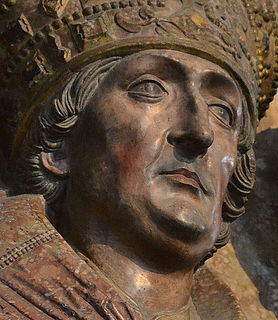 W
WLorenz von Bibra, Duke in Franconia was Prince-Bishop of the Bishopric of Würzburg from 1495 to 1519. His life paralleled that of Maximilian I (1459–1519), who served as Holy Roman Emperor from 1493 to 1519, whom Lorenz served as an advisor.
 W
WJohann Boemus (c.1485-1535) was a German humanist, canon of Ulm Minster, traveller, and Hebraist. He was compiler and author of the first ethnographic compendium of the Early Modern period in Europe.
 W
WGabriel Bucelin was a Benedictine polymath, Humanist, historical writer and cartographer.
 W
WJoachim Camerarius, the Elder, was a German classical scholar.
 W
WConrad Celtes was a German Renaissance humanist scholar and poet of the German Renaissance born in Franconia. He led the theatrical performances at the Viennese court and reformed the syllabi. In 1500, he published Tacitus' "Germania" and his rediscovered works and wrote the "Quatuor libri amorum" in 1500, after the model of Ovid.
 W
WArnoldus Clapmarius (1574–1604) was a German academic, jurist and humanist, known for his writings on statecraft.
 W
WJohann Cochlaeus (Cochläus) was a German humanist, music theorist, and controversialist.
 W
WJanus Cornarius was a Saxon humanist and friend of Erasmus. A gifted philologist, Cornarius specialized in editing and translating Greek and Latin medical writers with "prodigious industry," taking a particular interest in botanical pharmacology and the effects of environment on illness and the body. Early in his career, Cornarius also worked with Greek poetry, and later in his life Greek philosophy; he was, in the words of Friedrich August Wolf, "a great lover of the Greeks." Patristic texts of the 4th century were another of his interests. Some of his own writing is extant, including a book on the causes of plague and a collection of lectures for medical students.
 W
WCaspar Creuziger, also known as Caspar Cruciger the Elder, was a German Renaissance humanist and Protestant reformer. He was professor of Theology at the University of Wittenberg, preacher at the Castle Church, secretary to and worked with Martin Luther to revise Luther's German Bible translation.
 W
WAlbrecht von Eyb was one of the earliest German humanists.
 W
WSebastian Franck was a 16th-century German freethinker, humanist, and radical reformer.
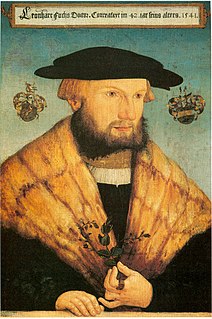 W
WLeonhart Fuchs, sometimes spelled Leonhard Fuchs, was a German physician and botanist. His chief notability is as the author of a large book about plants and their uses as medicines, i.e. a herbal. It was first published in 1542 in Latin. It has about 500 accurate and detailed drawings of plants, which were printed from woodcuts. The drawings are the book's most notable advance on its predecessors. Although drawings were in use beforehand in other herbal books, Fuchs' herbal book proved and emphasized high-quality drawings as the most telling way to specify what a plant name stands for.
 W
WAchilles Pirmin Gasser was a German physician and astrologer. He is now known as a well-connected humanistic scholar, and supporter of both Copernicus and Rheticus.
 W
WNikolaus Gerbel was a German humanist, jurist and doctor of both laws.
 W
WAlexander Hegius von Heek was a German humanist, so called from his birthplace Heek.
 W
WGeorg Henisch (1549–1618) was a physician, humanist, educator, astronomer, mathematician and a Professor of St. Ann Gymnasium in Augsburg, Germany, in 16th and early 17th centuries.
 W
WIacob Heraclid, born Basilicò and also known as Iacobus Heraclides, Heraclid Despotul, or Despot Vodă, was a Greek Maltese soldier, adventurer and intellectual, who reigned as Prince of Moldavia from November 1561 to November 1563. He is remembered as a pioneer of the Protestant faith in Eastern Europe, a champion of Renaissance humanism, and a founder of academic life in Moldavia. Active within the Greek diaspora in several countries, he was a student of Hermodorus Lestarchus, and worked as a scribe alongside his cousin, Iakobos Diassorinos. Heraclid forged his genealogy several times, claiming to be a member of the Branković dynasty; he was more reliably related to the Byzantine nobility in Rhodes, and claimed the titular lordship of Samos. In the late 1540s and early '50s, he studied medicine at the University of Montpellier, and married a local. A duelist and alleged infanticide, Heraclid fled over the border with the Holy Roman Empire before he could be executed for murder. He was slowly won over by the Reformation, serving the Protestant princes of the Upper Saxon Circle.
 W
WKonrad Heresbach was a Rhenish Reformer, Calvinist, humanist and educator.
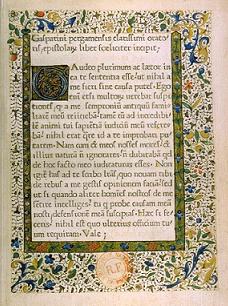 W
WJohann Heynlin, variously spelled Heynlein, Henelyn, Henlin, Hélin, Hemlin, Hegelin, Steinlin; and translated as Jean à Lapide, Jean La Pierre , Johannes Lapideus, Johannes Lapidanus, Johannes de Lapide was a German-born scholar, humanist and theologian, who introduced the first printing press in France (Paris) in 1470.
 W
WDavid Hoeschel was a German librarian, editor and scholar.
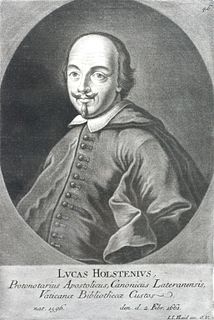 W
WLucas Holstenius, born Lukas Holste, was a German Catholic humanist, geographer and historian.
 W
WUlrich von Hutten was a German knight, scholar, poet and satirist, who later became a follower of Martin Luther and a Protestant reformer.
 W
WAmbrosius Lobwasser (1515–1585) was a German humanist and translator, born in Saxony. He served as professor of jurisprudence at the University of Königsberg from 1563 until his retirement in 1580, but is best known for his Psalter des Königlichen Propheten David, published in 1573 (Leipzig). This metrical psalter, a translation of the Genevan Psalter, became one of the standard psalm-books used by the evangelical churches of the German-speaking lands, including Switzerland. The Lobwasser psalter was widely reprinted into the 1800s.
 W
WPetrus Lotichius Secundus or Peter Lotz was a scholar and a significant neo-Latin poet of the 16th century.
 W
WPeter Luder (1415–1472), a professor of Latin at the University of Heidelberg from 1456, was the first to introduce humanist ideas in the university.
 W
WOttmar Luscinius was an Alsatian Catholic Humanist who wrote Biblical commentaries; b. Strasbourg, 1478, d. Freiburg, 1537.
 W
WConrad Lycosthenes was an Alsatian humanist and encyclopedist.
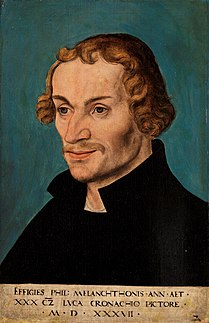 W
WPhilip Melanchthon was a German Lutheran reformer, collaborator with Martin Luther, the first systematic theologian of the Protestant Reformation, intellectual leader of the Lutheran Reformation, and an influential designer of educational systems. He stands next to Luther and John Calvin as a reformer, theologian, and moulder of Protestantism.
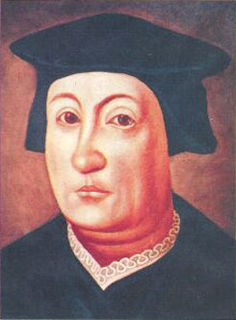 W
WJustus Menius was a German Lutheran pastor and Protestant reformer whose name is Latinized from Jost or Just Menig.
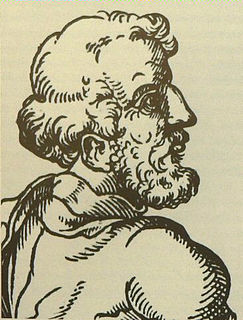 W
WJacob Micyllus, was a German Renaissance humanist and teacher, who conducted the city's Latin school in Frankfurt and held a chair at the University of Heidelberg, during times of great cultural stress in Germany.
 W
WPetrus Mosellanus Protegensis was a German humanist scholar. He is best known for the popular work on rhetoric, Tabulae de schematibus et tropis, and his Paedologia. He became professor at the University of Leipzig. He gave the opening Latin oration at the 1519 Leipzig Disputation between Johann Eck and Martin Luther.
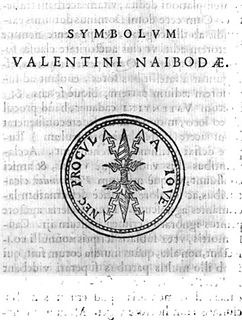 W
WValentin Naboth, known by the latinized name Valentinus Nabodus, was a German mathematician, astronomer and astrologer.
 W
WJohannes Nauclerus was a 16th-century Swabian historian and humanist. He was born Johann Vergenhans to a noble man of the same name. As was the fashion of the time, the family's name had been Latinized, with nauclerus, meaning "skipper," being a close translation of Vergenhans, meaning "ferryman." The family's coat of arms depicted a man on a sailing ship.
 W
WJohannes Oecolampadius was a German Protestant reformer in the Reformed tradition from the Electoral Palatinate. He was the leader of the Protestant faction in the Baden Disputation of 1526, and he was one of the founders of Protestant theology, engaging in disputes with Erasmus, Zwingli, Luther and Martin Bucer. Calvin adopted his view on the eucharist dispute.
 W
WKonrad Pellikan was a German Protestant theologian, humanist, Protestant reformer and Christian Hebraist who worked chiefly in Switzerland.
 W
WCaspar Peucer was a German reformer, physician, and scholar of Sorbian origin.
 W
WConrad Peutinger was a German humanist, jurist, diplomat, politician, and economist. A senior official in the municipal government of the Imperial City of Augsburg, he served as a counselor to Emperor Maximilian I and his successor Charles V. Also known as a passionate antiquarian, he collected, with the help of his wife Margareta Welser (1481–1552), one of the largest private libraries north of the Alps.
 W
WWillibald Pirckheimer was a German Renaissance lawyer, author and Renaissance humanist, a wealthy and prominent figure in Nuremberg in the 16th century, and a member of the governing City Council for two periods. He was the closest friend of the artist Albrecht Dürer, who made a number of portraits of him, and a close friend of the great humanist and theologian Erasmus.
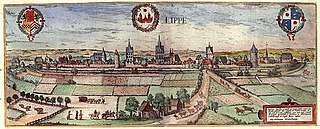 W
WAnton Praetorius was a German Calvinist pastor who spoke out against the persecution of witches and against torture.
 W
WHeinrich Rantzau or Ranzow (Ranzovius) was a German humanist writer and statesman, a prolific astrologer and an associate of Tycho Brahe. He was son of Johan Rantzau. He was Governor of the Danish royal share in the Duchy of Holstein, a rich man and celebrated book collector. Rantzau is perhaps best remembered as a patron of scholars. His own Tractatus astrologicus de genethliacorum thematum appeared in 1597, and went through five editions by 1615. In his own time, he was regarded as a generous supporter of artists and writers in Lübeck, many of whom he engaged to write memorials of his father. Rantzau was also a successful merchant with trading interests in the east-west trade through Husum and Lübeck.
 W
WJohann Reuchlin was a German-born Catholic humanist and a scholar of Greek and Hebrew, whose work also took him to modern-day Austria, Switzerland, and Italy and France. Most of Reuchlin's career centered on advancing German knowledge of Greek and Hebrew.
 W
WBeatus Rhenanus, born as Beatus Bild, was a German humanist, religious reformer, classical scholar, and book collector.
 W
WMatthias Ringmann (1482–1511), also known as Philesius Vogesigena, was an Alsatian German humanist scholar, cosmographer, and poet. Along with cartographer Martin Waldseemüller, he is credited with the first documented usage of the word America, on the 1507 map Universalis Cosmographia in honour of the Italian explorer Amerigo Vespucci.
 W
WHartmann Schedel was a German historian, physician, humanist, and one of the first cartographers to use the printing press. He was born and died in Nuremberg. Matheolus Perusinus served as his tutor.
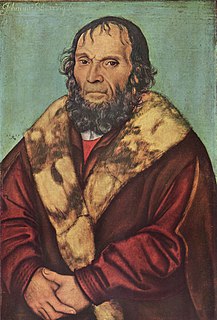 W
WJohannes Schöner was a renowned and respected German polymath. It is best to refer to him using the usual 16th-century Latin term "mathematicus", as the areas of study to which he devoted his life were very different from those now considered to be the domain of the mathematician. He was a priest, astronomer, astrologer, geographer, cosmographer, cartographer, mathematician, globe and scientific instrument maker and editor and publisher of scientific tests. In his own time he enjoyed a European wide reputation as an innovative and influential globe maker and cosmographer and as one of the continent's leading and most authoritative astrologers. Today he is remembered as an influential pioneer in the history of globe making and as a man who played a significant role in the events that led up to the publishing of Copernicus' "De revolutionibus" in Nürnberg in 1543.
 W
WGeorg(e) Spalatin was the pseudonym taken by Georg Burkhardt, was a German humanist, theologian, reformer, secretary of the Saxon Elector Frederick the Wise, as well as an important figure in the history of the Reformation.
 W
WJoannes Susenbrotus was a German humanist, teacher of Latin, and author of textbooks.
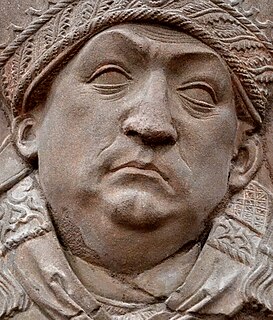 W
WRutgerus Sycamber or Roger of Venray was a humanist, music theorist, and a prolific but little-published writer. He was a canon regular of the Augustinian Order based for most of his life at the monastery of Hagen near Worms.
 W
WGeorg Tannstetter, also called Georgius Collimitius, was a humanist teaching at the University of Vienna. He was a medical doctor, mathematician, astronomer, cartographer, and the personal physician of the emperors Maximilian I and Ferdinand I. He also wrote under the pseudonym of "Lycoripensis". His Latin name "Collimitius" is derived from limes meaning "border" and is a reference to his birth town: "Rain" is a German word for border or boundary.
 W
WJohannes von Tepl, also known as Johannes von Saaz, was a Bohemian writer of the German language, one of the earliest known writers of prose in Early New High German. He was literate in Czech, German and Latin.
 W
WJohannes Trithemius, born Johann Heidenberg, was a German Benedictine abbot and a polymath who was active in the German Renaissance as a lexicographer, chronicler, cryptographer, and occultist. He had considerable influence on the development of early modern and modern occultism. His students included Heinrich Cornelius Agrippa and Paracelsus.
 W
WKaspar Ursinus Velius was a German humanist scholar, poet and historian.
 W
WHieronymus Wolf was a sixteenth-century German historian and humanist, most famous for introducing a system of Roman historiography that eventually became the standard in works of medieval Greek history.
 W
WUlrich Zasius was a German jurist.
 W
WThe humanist and theologian Jacob Ziegler of Landau in Bavaria, was an itinerant scholar of geography and cartographer, who lived a wandering life in Europe. He studied at the University of Ingolstadt, then spent some time at the court of Pope Leo X before he converted to Protestantism; subsequently his geographical works were placed on the Index Librorum Prohibitorum.